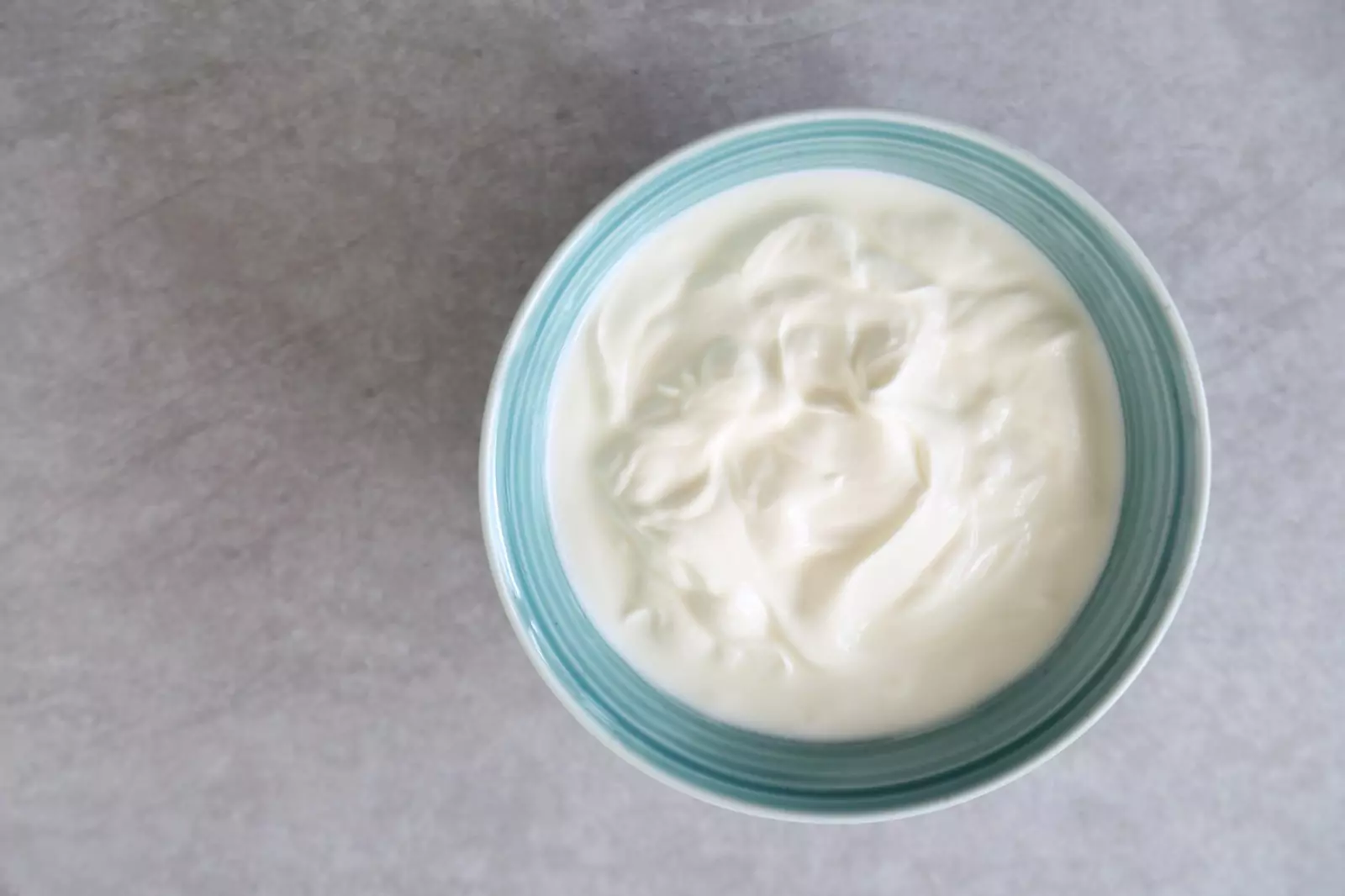
UP TO 40% OFF SITEWIDE






What Yogurt Has The Least Sugar And Carbs?


Table of Contents
- The Importance of Low-Sugar and Low-Carb Yogurt
- Carbs and Weight Management
- Health Benefits of Low-Sugar and Low-Carb Options
- Who Should Consider Low-Sugar and Low-Carb Yogurt?
- Types of Yogurt: A Quick Overview
- Greek Yogurt
- Skyr
- Traditional Yogurt
- Non-Dairy Yogurt
- Reading Yogurt Labels: What to Look For
- Sugar Content
- Carb Content
- Additives and Preservatives
- Organic vs. Non-Organic
- Making Your Own Low-Sugar and Low-Carb Yogurt
- Ingredients Needed
- Step-by-Step Process
- Flavoring Without Sugar
- Storage and Shelf Life
- SugarMD Super Berberine
- Health Benefits
- How it Complements Low-Sugar and Low-Carb Yogurt
- Safety and Long-term Use
- Tips for Incorporating Low-Sugar and Low-Carb Yogurt into Your Diet
- Meal Planning
- Snacking Smartly
- Pairing with Other Foods
- Portion Control
- Conclusion
- About The Author
Ever find yourself standing in the dairy aisle, overwhelmed by the endless sea of yogurt options? You're not alone. Today, we're tackling a question that's on everyone's mind: "What yogurt has the least sugar and carbs?" Why does it matter, you ask?
Well, if you're watching your sugar intake or counting carbs the yogurt you choose can make a world of difference. So, stick around as we delve into the nitty-gritty of low-sugar and low-carb yogurts and help you make the best choice for your health and taste buds!
The Importance of Low-Sugar and Low-Carb Yogurt
Let's get real for a second. You stroll down the dairy aisle, pick up a yogurt and think you're making a healthy choice. But wait, have you checked the sugar content? Many regular yogurts are sugar bombs in disguise. Seriously, some have as much sugar as a candy bar!
This is a big deal, especially if you're trying to manage your blood sugar levels. High sugar intake can lead to a host of issues like insulin resistance, diabetes and even heart disease. So, when you're reaching for that strawberry-flavored yogurt, remember: it might not be as innocent as it looks.
Carbs and Weight Management
Now, let's talk carbs. Ah, carbohydrates—the energy-providing macronutrients we all love to hate. But not all carbs are created equal. Simple carbs, often found in flavored yogurts, can cause rapid spikes in blood sugar. This isn't just bad for diabetes management;
it's also a hurdle if you're trying to lose weight. Why? Because these sugar spikes are followed by crashes which can lead to cravings and overeating. Opting for low-carb yogurt can help you manage your weight more effectively by keeping your blood sugar stable.
Health Benefits of Low-Sugar and Low-Carb Options
Alright, enough about the bad stuff. Let's focus on the good! Low-sugar and low-carb yogurts come with a plethora of health benefits. First off they're often higher in protein which is great for muscle repair and growth.
They also contain probiotics the friendly bacteria that keep your gut healthy. Plus, with fewer carbs these yogurts have a lower glycemic index. This means they release energy slowly, helping you feel fuller for longer. And let's not forget they're a better option for maintaining healthy glucose levels, especially when paired with a supplement like SugarMD Super Berberine.
Who Should Consider Low-Sugar and Low-Carb Yogurt?
So, who stands to benefit the most from these yogurt options? Well, pretty much everyone! If you're diabetic or pre-diabetic, low-sugar and low-carb yogurts are a no-brainer. They're also a smart choice for those on a ketogenic or low-carb diet.
Parents, listen up: these yogurts are a healthier option for your kids too. And if you're simply health-conscious or looking to lose weight, switching to a low-sugar, low-carb option can make a significant difference in your overall well-being.
Types of Yogurt: A Quick Overview
Greek Yogurt
Let's kick things off with Greek yogurt, a fan favorite for many good reasons. First off, it's strained more times than traditional yogurt which makes it thicker and creamier. But here's the kicker: this extra straining process also removes more sugar and carbs, making it a fantastic choice when you're wondering what yogurt has the least sugar and carbs.
It's also packed with protein which can help you feel full and satisfied. So, if you're into weight management or muscle building, Greek yogurt should be on your radar.
Skyr
Next up, we have Skyr the Icelandic yogurt that's taking the world by storm. It's similar to Greek yogurt but even thicker. Imagine a yogurt so thick you can eat it with a fork! Skyr is traditionally made from skim milk which means it's low in fat but high in protein.
It's also lower in sugar compared to traditional yogurt. If you're looking for a yogurt that's both low in sugar and carbs but still rich in nutrients, Skyr is worth a try.
Traditional Yogurt
Now, let's talk about the yogurt that started it all: traditional yogurt. This is the yogurt you probably grew up eating. It's smooth, a bit tangy and comes in a variety of flavors. However, traditional yogurt can be a bit of a sugar and carb trap, especially the flavored varieties.
If you're going for traditional yogurt, it's best to stick with the plain, unsweetened kind and add your own fruits or sweeteners like stevia for flavor.
Non-Dairy Yogurt
Last but not least, let's delve into non-dairy yogurt options. These are made from plant-based milk like almond, coconut, or soy. Now, you might be wondering, are these low in sugar and carbs? The answer varies. Some non-dairy yogurts are loaded with added sugars, while others are quite low.
Always check the label to make sure you're making a choice that aligns with your dietary needs. Non-dairy yogurts are a great option for vegans or those with lactose intolerance but still want to enjoy the creamy delight that is yogurt.
| Types of Yogurt | Texture & Consistency | Sugar & Carb Content | Protein Content | Special Features |
| Greek Yogurt | Thick and creamy | Low | High | Extra strained, good for weight management and muscle building |
| Skyr | Very thick | Low | High | Made from skim milk, rich in nutrients |
| Traditional Yogurt | Smooth and tangy | Varies (can be high) | Moderate | Comes in various flavors, plain is best for low sugar and carbs |
| Non-Dairy Yogurt | Varies | Varies | N/A | Plant-based, good for vegans and lactose intolerant, check label for sugar and carbs |
Reading Yogurt Labels: What to Look For
Sugar Content
Alright, let's get down to business. You're in the dairy aisle, staring at a wall of yogurt options. Your mission? To find out what yogurt has the least sugar and carbs. Your first stop is the sugar content on the label. Many people overlook this crucial detail but you won't.
Sugar content is usually listed in grams per serving. A good rule of thumb? Aim for yogurts with less than 10 grams of sugar per serving. Even better if it's under 5 grams. This will help you steer clear of those sneaky sugar-laden options that pretend to be healthy.
Carb Content
Moving on to carbs. If you're on a low-carb diet or simply watching your carb intake, this is the section for you. Carbs are also listed in grams per serving. Now, don't get confused between total carbs and net carbs. Net carbs are what you get when you subtract the fiber content from the total carbs.
Why does this matter? Because fiber is good for you and doesn't count against your daily carb limit. So, look for yogurts with lower net carbs to make a smarter choice.
Additives and Preservatives
Let's shift gears and talk about additives and preservatives. These are the extra ingredients that often find their way into your yogurt. Think artificial colors, stabilizers and preservatives.
While they might make your yogurt look prettier or last longer they're not doing your health any favors. So, scan the ingredients list for names you can't pronounce. If you find any, it might be best to put that yogurt back on the shelf.
Organic vs. Non-Organic
Finally the organic vs. non-organic debate. Organic yogurts are made from milk that comes from cows not treated with antibiotics or synthetic hormones. They also tend to be free from artificial additives. Sounds great, right? But hold on they can be pricier.
If budget is a concern, you might wonder if the extra cost is worth it. Well, if you're particularly health-conscious or have specific dietary needs, going organic might be a good idea. Otherwise, non-organic options can still be healthy if you're vigilant about reading labels.
Making Your Own Low-Sugar and Low-Carb Yogurt
Ingredients Needed
So you've scoured the dairy aisle and you're still not satisfied. Maybe it's time to take matters into your own hands. Making your own yogurt at home can be a game-changer. Not only do you have full control over what goes in but you also get to decide what yogurt has the least sugar and carbs. So, what will you need? Here's a quick list:
- Whole or skim milk (your choice but whole milk will yield creamier results)
- A yogurt starter culture (available online or at health food stores)
- Optional: a sweetener like stevia or monk fruit extract
Step-by-Step Process
Now, let's get to the fun part—the actual making of the yogurt. Don't worry; it's easier than you think. Here's a simplified step-by-step guide:
- Heat the milk in a saucepan until it reaches about 180°F. This kills any unwanted bacteria.
- Let the milk cool down to around 110°F. Too hot and you'll kill the good bacteria; too cold and they won't multiply.
- Add the yogurt starter culture to the milk and mix well.
- Pour the mixture into a container and let it ferment. This can be done in a yogurt maker or simply by keeping the container in a warm place for 6-12 hours.
- Once the yogurt has set, place it in the fridge to cool and firm up.
Flavoring Without Sugar
Ah, flavoring—the part where many commercial yogurts go off the rails with sugar. But you won't. You can add natural flavors without the sugar overload. Think fresh fruits like berries or apple slices. Spices like cinnamon or nutmeg can also add a kick without the carbs.
If you're craving something sweet, opt for natural sweeteners like stevia or monk fruit extract. These won't spike your blood sugar and keep your homemade yogurt low in carbs.
Storage and Shelf Life
You've made your yogurt, flavored it to your liking and now you're wondering how long it will last. Homemade yogurt can be stored in the fridge for up to two weeks.
Just make sure to keep it in an airtight container to maintain its freshness. If you notice any strange smells or mold, it's time to say goodbye and start a new batch.
SugarMD Super Berberine
So you're on the hunt for the yogurt with the least sugar and carbs but have you considered what else could complement this healthy choice? Enter SugarMD Super Berberine. This isn't just another supplement on the shelf; it's a targeted formula designed to maintain healthy glucose metabolism.
It combines dihydroberberine with 100% pure Ceylon cinnamon. The result? A supplement that's not just effective but also safe for long-term use.

Health Benefits
SugarMD Super Berberine is a powerhouse when it comes to glucose metabolism. It helps regulate blood sugar levels, making it a valuable ally for anyone dealing with diabetes or pre-diabetes. But that's not all. It also has anti-inflammatory properties.
Inflammation is often the silent culprit behind a host of health issues, from joint pain to digestive problems. By reducing inflammation, you're not just managing your blood sugar; you're taking a holistic approach to your well-being.
How it Complements Low-Sugar and Low-Carb Yogurt
Now, you might be wondering, how does this supplement fit into the picture when we're talking about yogurt with the least sugar and carbs? The answer is synergy. Low-sugar and low-carb yogurts are already doing a great job at keeping your blood sugar in check.
When you add SugarMD Super Berberine to the mix, you're amplifying these benefits. The supplement can help maintain stable glucose levels, making your healthy yogurt choice even more effective. It's like having an extra layer of defense in your health regimen.
Safety and Long-term Use
Of course, safety is a top concern when introducing any supplement into your diet. The good news? SugarMD Super Berberine is not only effective but also safe for long-term use.
It doesn't have the side effects commonly associated with other glucose-managing supplements. This makes it a reliable option for those who are looking for a long-term solution to complement their low-sugar and low-carb dietary choices.
Tips for Incorporating Low-Sugar and Low-Carb Yogurt into Your Diet
Meal Planning
So, you've decided to make the switch to yogurt with the least sugar and carbs. Great choice! But how do you make this a seamless part of your daily routine? Meal planning is your first step.
Consider replacing one of your regular meals with a yogurt-based dish. Breakfast is an obvious choice but don't rule out lunch or even dinner. A savory yogurt bowl with grilled chicken and veggies can be both satisfying and low in carbs and sugar.
Snacking Smartly
Snacks can be a tricky territory. It's all too easy to reach for a bag of chips or a sugary granola bar. But with a little foresight, you can make low-sugar and low-carb yogurt your go-to snack.
Prepare single-serving yogurt cups at the beginning of the week. Add some nuts or low-carb fruits like berries for flavor and extra nutrients. This way, when hunger strikes, you're not scrambling for options; you've got a healthy snack ready to go.
Pairing with Other Foods
Yogurt doesn't have to be a solo act. It pairs wonderfully with a variety of foods. For instance, you can use it as a base for smoothies, adding in fruits and perhaps a scoop of protein powder.
How about using it as a dressing for your salads? Mix it with some herbs and spices and you've got yourself a creamy, low-carb dressing. You can even use it in baking as a substitute for buttermilk or sour cream. The possibilities are endless and each one makes it easier to incorporate yogurt with the least sugar and carbs into your diet.
Portion Control
Last but not least, let's talk about portion control. It's easy to go overboard when you find something that's both tasty and healthy. But even low-sugar and low-carb options can add up if you're not careful.
Most yogurts list their nutritional information per serving, so make sure you're sticking to that. If you're using yogurt as a base for smoothies or as a dressing, measure it out to ensure you're not inadvertently increasing your carb and sugar intake.
Conclusion
We've explored the importance of low-sugar and low-carb yogurts, sifted through the types and even learned how to make our own. Not to forget, we've debunked some myths and offered tips for incorporating these healthier options into your daily routine.
So the next time you find yourself in that dairy aisle, you'll be armed with all the knowledge you need to make an informed choice. And hey, why not give SugarMD Super Berberine a try to complement your healthy eating habits? Until next time, stay healthy and keep snacking smart!
About The Author
Meet Dr. Ahmet Ergin a highly skilled and dedicated endocrinologist with a passion for diabetes care. Dr. Ergin earned his medical degree with honors from Marmara University in Istanbul. He completed internal medicine residency and endocrinology fellowship at Cleveland Clinic.
Dr. Ergin is board-certified in Internal Medicine, Endocrinology, Diabetes and Metabolism due to his vast medical expertise. He's a certified diabetes educator, author of "The Ultimate Diabetes Book," and founder of "the SugarMD YouTube channel."
Dr. Ergin offers exceptional diabetes care to his patients in Port Saint Lucie, FL, helping them manage effectively. Disclaimer: These statements have not been evaluated by the Food and Drug Administration. Information on this website isn’t intended to treat, cure or prevent any disease. Discuss with your doctor and do not self-treat.
Written By Dr. Ahmet Ergin
466 total articles
Meet Dr. Ahmet Ergin, a highly skilled and dedicated endocrinologist with a passion for diabetes care. Dr. Ergin earned his medical degree with honors from Marmara University in Istanbul. He completed internal medicine residency and endocrinology fellowship at Cleveland Clinic. Dr. Ergin is board-certified in Internal Medicine, Endocrinology, Diabetes, and Metabolism due to his vast medical expertise. He's a certified diabetes educator, author of “The Ultimate Diabetes Book,” and founder of “the SugarMD YouTube channel.” Dr. Ergin offers exceptional diabetes care to his patients in Port Saint Lucie, FL, helping them manage effectively. For a closer look into his insights and experiences, connect with Dr. Ahmet Ergin on LinkedIn, Instagram, and YouTube.”
Disclaimer: These statements have not been evaluated by the Food and Drug Administration. Information on this website isn't intended to treat, cure or prevent any disease. Discuss with your doctor and do not self-treat.
Products













